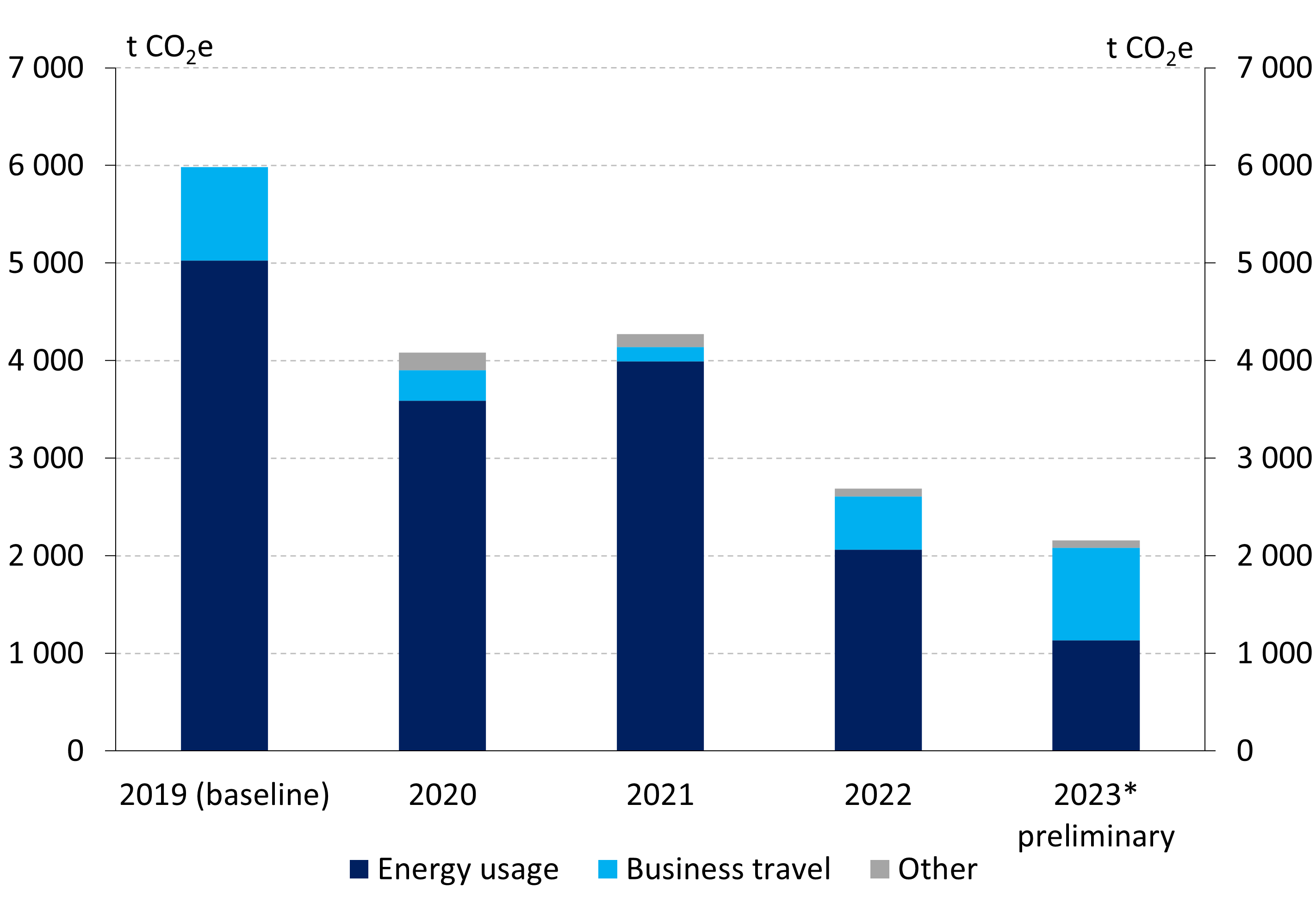The fight against and adaptation to climate change as well as environmental issues that are generally becoming increasingly severe have significant impacts on the economy as a whole and thus also on the financial intermediary system. With this in mind, the MNB launched its Green Programme in 2019, which aims to reduce the risks related to climate change and other environmental issues, expand green financial services in Hungary, broaden the corresponding Hungarian and international knowledge, and further mitigate its own and financial actors’ ecological footprint. The MNB is at the forefront of international practices in continuously reducing the environmental impact of its operations.
The MNB's carbon footprint
As part of the Green Programme, the MNB has made an ambitious commitment to reduce its carbon emissions: the MNB's strategic environmental targets for 2020–2022 included a reduction of at least 30% in its operational carbon footprint, which was exceeded by the end of 2022, with a reduction of nearly 60%. The MNB will continue to reduce its carbon footprint related to its operational activities as far as possible, with a target to reduce its carbon footprint per capita by 75% by the end of 2025 compared to the 2019 baseline.
1. chart: MNB's operational carbon footprint over time
Source: MNB
Carbon offsetting
Each year,
the central bank aims to compensate for the unavoidable carbon dioxide burden
of the MNB's operations, which cannot be further reduced. The MNB Act also
provides dedicated resources for this purpose, since according to Section 170
(3) (f), the MNB may use 6 per cent of the revenue from the fines imposed by it
to promote and support environmental protection objectives with a view to
mitigating the impact of its activities on the environment.
In its
efforts to reduce the carbon burden, the MNB is working together with WWF
Hungary, a nature conservation NGO. Offsetting has been achieved through
long-term ecological investments in habitat restoration, which in addition to
carbon sequestration, also provides significant environmental benefits. They
also contribute to the conservation of biodiversity in the area through the
support of ecosystem services. Forests play an important role in climate
adaptation through water retention, erosion control and microclimate regulation.
1. picture: Ecosystem services
Source: WWF
The MNB started offsetting its remaining carbon emissions in 2020.
- As a first step, the MNB offset the carbon footprint of the 2019 International Green Finance Conference with a complex restoration programme of a 1.5 hectare alder habitat in the municipality of Pápateszér. This would ensure the sequestration of 120 tonnes of carbon dioxide by 2050.
- MNB also intends to offset the carbon burden of its overall operations by implementing a complex, long-term habitat restoration ecological investment. The 2020 offset will be achieved through the afforestation of 24 hectares of arable land in Geszt, which will result in the sequestration of 4628 tonnes of carbon dioxide by 2050.
- The MNB is continuing to offset its carbon footprint with large-scale afforestation and grassland reconstruction in Drávaszentes, in the Danube-Drava National Park, which will sequester 4663 tonnes of carbon dioxide by 2050 in a designated 32-hectare area.
The Magyar Nemzeti Bank is firmly committed to long-term carbon neutrality by ambitiously reducing its operational carbon footprint and supporting complex habitat restoration projects.
Watch our short film about the Geszt habitat restoration project.


